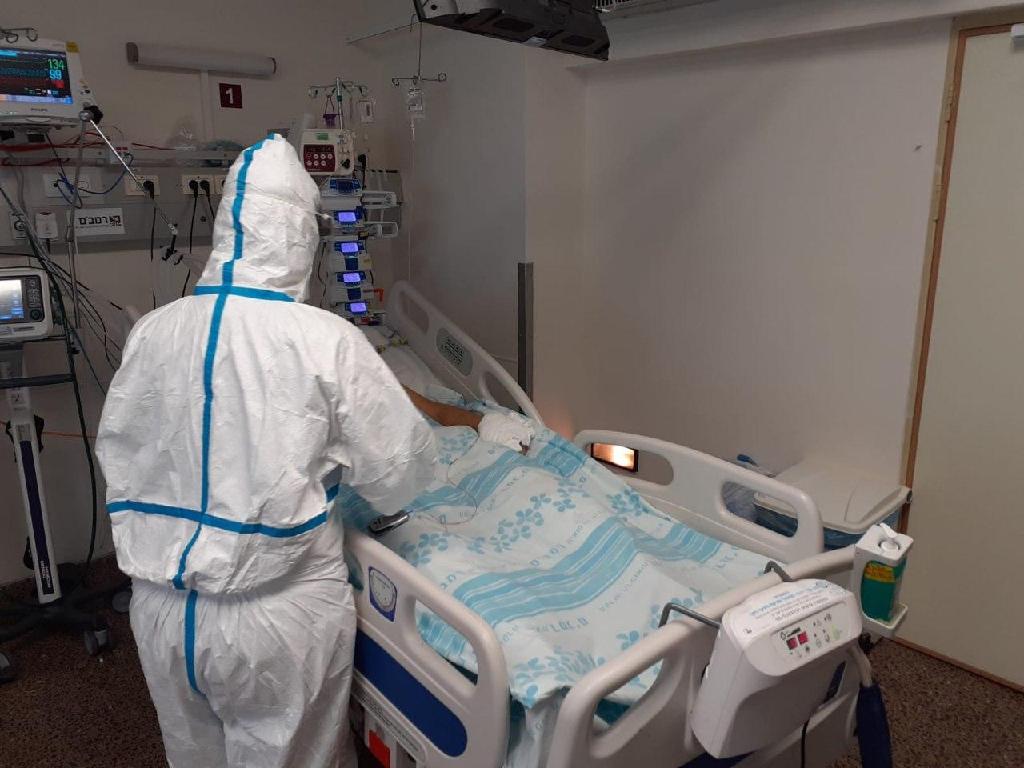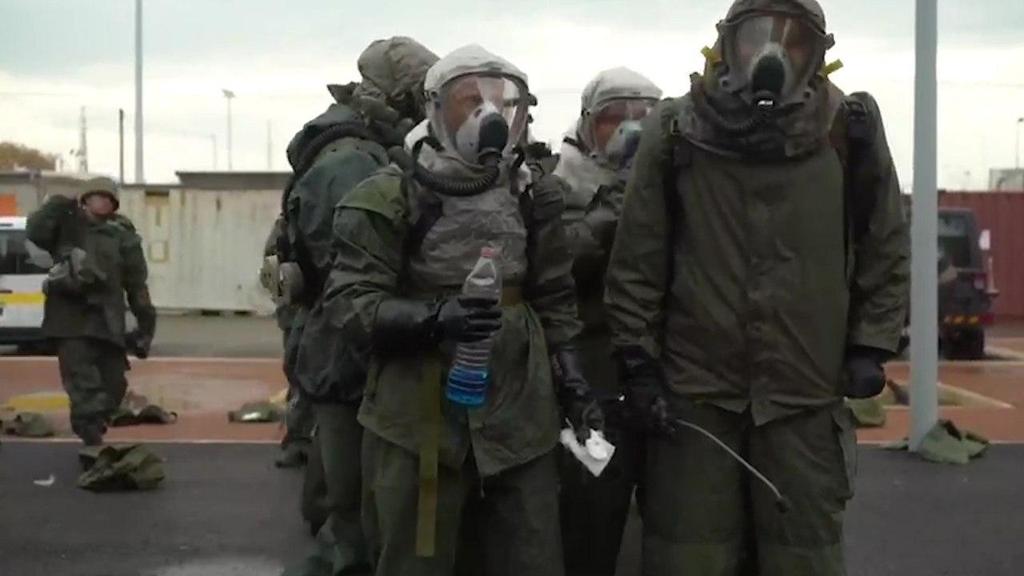Getting your Trinity Audio player ready...
As it stands, Israeli government and the public are managing to slowly get the current coronavirus crisis under control, as evident by the number of patients requiring ventilators as well as the number of those is serious and moderate condition.
Although the number of infected continues to rise daily, it is not at a pace that would put the health care system at risk of collapse. Such a collapse would lead to the nightmarish scenario of doctors having to focus on patients who had a higher probability of surviving.
Encouragement can also be drawn from the improved learning curve of the health and government officials who draw conclusions as the events develop.
This is mainly true for the hospitals and the medical staff - the infantry division on the front lines of the battle against the virus.
However, this should not create a false sense of optimism, which could downplay the risks that might be ahead.
Almost all Israeli experts on infectious diseases, public health, economy and finances saw the crisis looming on the horizon due to the bottlenecks that are now hampering the country's ability to fight the disease.
The most obvious obstacle is the lack of ventilators and medical staff trained in providing respiratory care. The number of machines in Israel will most likely reach the amount needed, but it is yet unclear if all of them will be suited to treat coronavirus patients.
A ventilator that "pushes" air into the patient's lungs but does not draw back the air the patient exhales endangers other patients and medical personnel in the same room as the air emitted from the infected lungs would be saturated with the virus.
5 View gallery


Treating coronavirus patients at Rambam Healthcare Campus in Haifa
(Photo: Rambam Healthcare Campus)
The lack of medical teams skilled in ventilation is even more worrisome as it is difficult to train such teams quickly, even if there are enough machines.
Another serious issue is the fact that the government does not have a realistic emergency plan to help the economy or the citizens forced to take unpaid leave for goodness knows how long.
Mass layoffs and downturn in factory production, businesses marketing networks and a six-month epidemic is a hit that will have long-term impact as well as enduring mental, social and political implications.
What's more, the government has no crisis exit plan after the epidemic is over; and most importantly, the government has yet to make a strategic decision about the proper compromise between the health system's desire to impose a complete closure and the need to continue to work in a way that will prevent economic paralysis.
The government refuses to take decisive measures to reduce the danger of infection both in the ultra-Orthodox sector and from it to the general public.
In this context, it is essential to kick Health Minister Yaakov Litzman out of his position. Litzman is not only a major factor behind the health system deficiencies, but it is mainly because of his personal and political influence on the prime minister that no enforcement measures were taken against rebellious sections of the ultra-Orthodox public in the early stages of the Israeli epidemic in late February.
5 View gallery


Prime Minister Benjamin Netanyahu, Health Ministry DG Moshe Bar-Siman Tov and Health Minister Yaakov Litzman
(Photo: Shalev Shalom)
This is not the time to explore just how Litzman's presence at the government table and in Prime Minister Benjamin Netanyahu's inner circle made the ultra-Orthodox sector, and especially its extreme factions, immune to the necessary public discipline and enforcement.
It is also important to know that even at this hour, Litzman is not using his skills to embark on a dramatic campaign of persuasion that will make it clear to those extremists in the ultra-Orthodox sector that they are in danger of dying.
Nor is he able to assist Netanyahu and Health Ministry Director-General Moshe Bar-Siman-Tov in managing the crisis because he has no qualifications to do so.
Litzman is a sane, smart and manipulative man who mainly uses his influence for the benefit of the ultra-Orthodox sector. A man who dares to declare that the Messiah will come at Passover and deliver us from the plague is a man drunk with power, someone insensitive and impertinent.
Keeping him as health minister, is cause for worry for all Israeli citizens, including the ultra-Orthodox and Arab sectors.
The healthcare system has not formulated a protocol or means for reducing infections in nursing homes and caring for their suffering residents, not to mention the loneliness and anxiety resulting from uncertainty and helplessness.
The number of tests increases, but there are disruptions and failures that interfere with it. The crisis system seems to be too enormous for the health system to handle and it is better to transfer it to the defense establishment, which does have the manpower and capabilities.
Apparently, we are about to get a wasteful government that will cost the public already in financial distress some NIS 700 million. Furthermore, most of the designated ministers have zero experience in the field for which they will be responsible and most of them have no proven experience or skills in management.
5 View gallery


Benjamin Netanyahu and Benny Gantz discussing a unity government with President Reuven Rivlin
(Photo: GPO)
There is no justification for the existence of such a government even if the purpose of some of its founders is to prevent the existing one from harming democracy and the justice system.
The new administration should have a qualified health minister, a person who is a professional in the fields of management and organization and understands public health.
There are quite a few such candidates who have recently served in senior positions in the defense and health systems who meet these criteria.
The IDF should assist the police in enforcement. This has precedent in IDF operations in the West Bank, where soldiers join police officers in such missions.
5 View gallery


IDF troops wearing protective gear against the coronavirus
(Photo: IDF Spokesperson's Unit)
When deploying soldiers in a civilian environment, they should merely assist the police and not carry weapons (except for a limited number of commanders). They should not be deployed in Arab or ultra-Orthodox communities due to sensitivities.
Some 700 designated soldiers have undergone mental preparation and briefings.
Now they are just waiting for the government's approval to swing into action.


